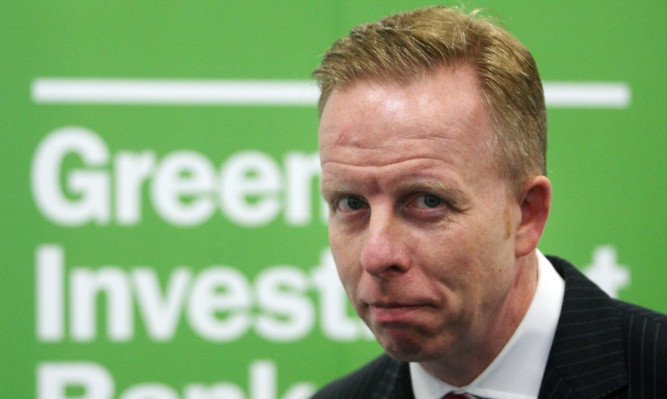The taxpayer-backed UK Green Investment Bank (GIB) has helped bring about more than £1.6 billion of private funding for renewable energy projects in its first five months in operation.
The bank said it had directly committed £635 million to a total of 11 schemes during the period. It said that for every £1 it had spent it had mobilised a further £3 of private sector cash towards the delivery of major green energy projects.
Investments made by the GIB have been across a range of green projects including backing for an NHS clean energy centre and a local authority recycling centre.
But it has also made significant investment in renewable power generation schemes including spending £57.5m to buy out a 24.95% stake in the Rhyl Flats offshore wind array from RWE Group.
The GIB capitalised with £3bn of public funds said all of its transactions had been carried out on fully commercial terms and involved co-investors bringing their own funds to the table.
Aside from the direct investments, one of the most significant moves for the GIB has been the establishment of an alliance with Abu Dhabi state-backed clean energy firm Masdar which will see additional funding support forthcoming for UK clean energy projects over the next seven years.
Chief executive Shaun Kingsbury said the GIB which expects to increase its headcount by a quarter to around 100 by the end of this year had made rapid progress.
He said: “This represents an excellent level of activity and shows the impact we can have in helping the UK towards a greener economy.
“We are essentially a start-up and have a long road ahead of us as we build an enduring bank, but we’ve hit the ground running.
“Our mission goes beyond simply investing our own funds; our job is to crowd-in money from other sources. I’m really pleased that we’ve managed to bring in almost £3 of private funding for every £1 we have committed.”
Once operational and on an annualised basis, the initial GIB investments are expected to cut greenhouse gas emissions by 2.5m tonnes the equivalent of taking a million cars off UK roads and generate enough electricity for 2.3m homes.
UK Government Business Secretary Vince Cable who also visited the Entrepreneurial Spark hatchery in Edinburgh’s South Gyle yesterday with Scottish Secretary Michael Moore said the GIB was punching above its weight.
He said: “The bank is doing precisely what we set it up to do draw in and not shut out private sector capital.
“I now want to see the bank move on to become a valued and integral part of the UK’s financial infrastructure, playing a pivotal role in the financing of our transition to a green economy.
“We must seize the opportunities for jobs and economic growth in this sector before others do.”
Among future projects that will come before the GIB for funding support is a nationwide programme designed to convert Scotland’s street lights to energy efficient LEDs.
The GIB is already actively considering more than £500m worth of Scottish low carbon projects across the public and private sector.
Scottish rural affairs secretary Richard Lochhead said: “By working closely with the GIB, converting Scotland’s street lighting to LED is a programme the Scottish Government has identified which would be ideal for potential GIB funding.
“Payback time is estimated at around seven to nine years, which is an outstanding spend to save case based on energy savings of as much as 40% to 60%.”
